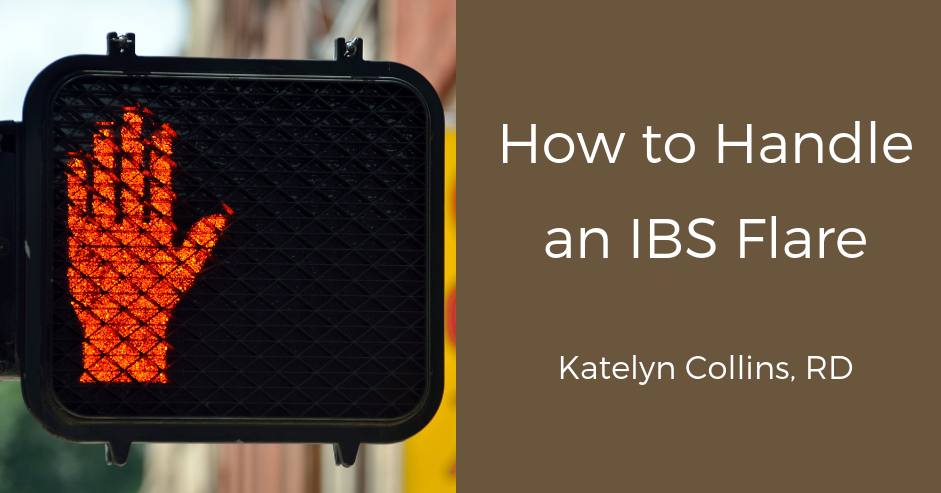How to Handle an IBS Flare

It starts with a sharp pain. You then begin to quickly scan the mental log of everything you’ve eaten in the past 48 hours until you pick out the possible offender. “There weren’t onions in that meal…were there?” A few more pains and a low, ominous gurgle confirm your deepest fears: you’ve aggravated your irritable bowel syndrome (IBS) and are having an IBS flare.
IBS flares are going to happen
It’s an unfortunate fact of IBS life. No matter how careful you are, you are going to have flares. If you are in the reintroduction phase of the low FODMAP diet, you may be all too familiar with this reality. Even if you are lucky enough to challenge every FODMAP with success, you will most likely still have some type of IBS flare or symptoms at some point in your life. Instead of panicking when those dreaded pains and gurgles start, follow these tips to help you ride out your IBS flare.
Make yourself comfortable
You know yourself better than anyone else. If you’re a seasoned IBS-D (IBS with diarrhea) veteran, you probably have an idea of how much time after the first twinge of pain you have to get to a bathroom. If, on the other hand, your IBS is in the “C” category (IBS with constipation), you likely know how long the bloating and pain may last. Either way, it’s important to make yourself as comfortable as you can during this time. While this isn’t always possible due to the responsibilities of daily life, you are probably better off rescheduling non-mandatory social engagements until you feel better.
Be proactive about managing IBS symptoms
Hopefully you are able to get comfortable before the crescendo of pain and other unfortunate IBS symptoms begin. At this point, you may want to try coping techniques that you have developed with your healthcare professional. Drinking a stomach settling tea or taking a warm bath can also help sooth your symptoms. Peppermint and ginger tea have been reported to calm an upset stomach, but watch out for high FODMAP chamomile and fennel tea and any tea that has honey, chicory root, or polyols (such as sorbitol) added to it.
This too shall pass
The most important thing to remember during an IBS flare is that it’s just a passing attack and you will have more good days. Once you weather the storm, you may feel lingering nausea and pains for a few days after. If you are reintroducing FODMAPs, it’s best to return to a strict low FODMAP diet to give your system time to recuperate. If the symptoms continue for more than a few days or if you get worse, you should contact your healthcare professional to make sure there isn’t something else going on.
IBS can be mentally and physically taxing. Even after you have found relief through dietary and lifestyle changes, there is always a possibility of a flare. When IBS flares do happen, don’t beat yourself up over it! Get comfortable, wait it out, and reassess your triggers.
Ready to get to the root of your IBS symptoms?
Click here to learn how to work with me!